For the 2025 school year, there is 1 public high school serving 805 students in Johnston School District. This district's average high testing ranking is 5/10, which is in the bottom 50% of public high schools in Rhode Island.
Public High School in Johnston School District have an average math proficiency score of 22% (versus the Rhode Island public high school average of 26%), and reading proficiency score of 42% (versus the 46% statewide average).
Public High School in Johnston School District have a Graduation Rate of 82%, which is less than the Rhode Island average of 85%.
The school with highest graduation rate is Johnston Senior High School, with 80-84% graduation rate. Read more about public school graduation rate statistics in Rhode Island or national school graduation rate statistics.
Minority enrollment is 42% of the student body (majority Hispanic), which is less than the Rhode Island public high school average of 49% (majority Hispanic).
Overview
This School District
This State (RI)
# Schools
8 Schools
72 Schools
# Students
3,116 Students
43,725 Students
# Teachers
264 Teachers
3,574 Teachers
Student : Teacher Ratio
12:1
12:1
District Rank
Johnston School District, which is ranked within the top 50% of all 62 school districts in Rhode Island (based off of combined math and reading proficiency testing data) for the 2021-2022 school year.
The school district's graduation rate of 75-79% has decreased from 78% over five school years.
Overall District Rank
#31 out of 63 school districts
(Top 50%)
(Top 50%)
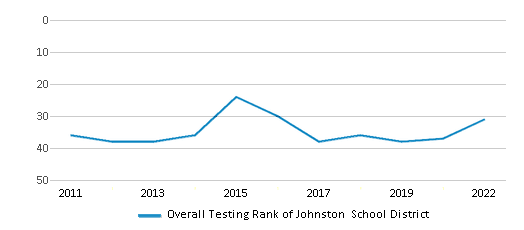
Math Test Scores (% Proficient)
22%
27%
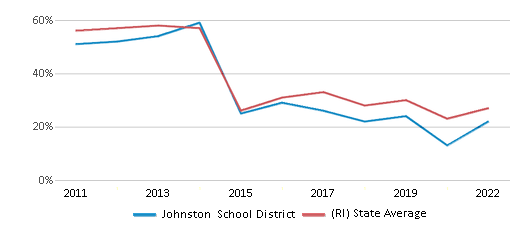
Reading/Language Arts Test Scores (% Proficient)
33%
33%
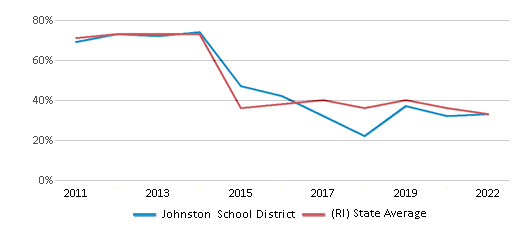
Science Test Scores (% Proficient)
31%
31%
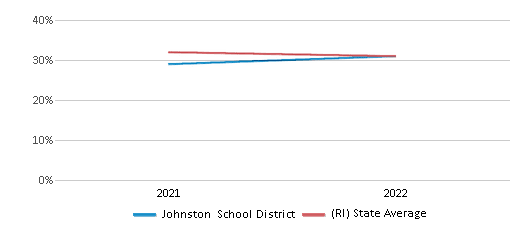
Graduation Rate
75-79%
83%
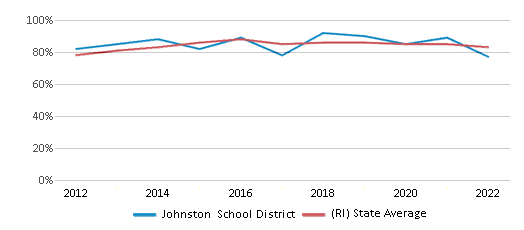
Students by Ethnicity:
Diversity Score
0.59
0.64
# American Indian Students
13 Students
319 Students
% American Indian Students
1%
1%
# Asian Students
106 Students
1,381 Students
% Asian Students
3%
3%
# Hispanic Students
1,001 Students
13,439 Students
% Hispanic Students
32%
31%
# Black Students
199 Students
4,178 Students
% Black Students
6%
10%
# White Students
1,730 Students
22,097 Students
% White Students
56%
50%
# Hawaiian Students
4 Students
60 Students
% Hawaiian Students
n/a
n/a
# Two or more races Students
63 Students
1,991 Students
% of Two or more races Students
2%
5%
Students by Grade:
# Students in PK Grade:
144
7
# Students in K Grade:
247
8
# Students in 1st Grade:
239
12
# Students in 2nd Grade:
231
24
# Students in 3rd Grade:
244
17
# Students in 4th Grade:
224
19
# Students in 5th Grade:
244
17
# Students in 6th Grade:
248
81
# Students in 7th Grade:
224
197
# Students in 8th Grade:
266
191
# Students in 9th Grade:
212
10,883
# Students in 10th Grade:
214
11,105
# Students in 11th Grade:
202
10,987
# Students in 12th Grade:
177
10,177
# Ungraded Students:
-
-
District Revenue and Spending
The revenue/student of $21,052 in this school district is less than the state median of $22,250. The school district revenue/student has stayed relatively flat over four school years.
The school district's spending/student of $21,193 is less than the state median of $21,467. The school district spending/student has stayed relatively flat over four school years.
Total Revenue
$66 MM
$2,998 MM
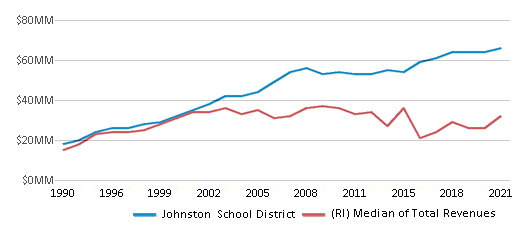
Spending
$66 MM
$2,892 MM
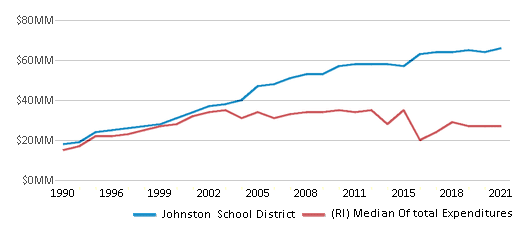
Revenue / Student
$21,052
$22,250
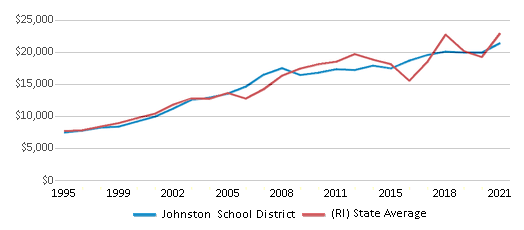
Spending / Student
$21,193
$21,467
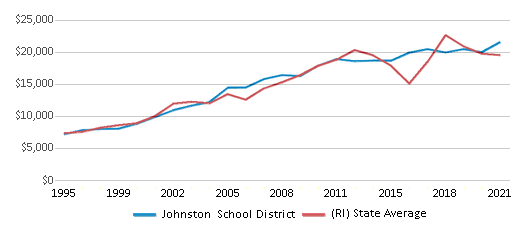
Best Johnston School District Public High Schools (2025)
School
(Math and Reading Proficiency)
(Math and Reading Proficiency)
Location
Grades
Students
Rank: #11.
Johnston Senior High School
(Math: 20-24% | Reading: 40-44%)
Rank:
Rank:
6/
Top 50%10
345 Cherry Hill Road
Johnston, RI 02919
(401) 233-1920
Johnston, RI 02919
(401) 233-1920
Grades: 9-12
| 805 students
Recent Articles

What Is A Charter School?
Explore the world of charter schools in this comprehensive guide. Learn about their history, how they operate, and the pros and cons of this educational innovation. Discover key facts about charter schools, including admission policies, demographics, and funding, as well as what to look for when considering a charter school for your child.

10 Reasons Why High School Sports Benefit Students
Discover the 10 compelling reasons why high school sports are beneficial for students. This comprehensive article explores how athletics enhance academic performance, foster personal growth, and develop crucial life skills. From improved fitness and time management to leadership development and community representation, learn why participating in high school sports can be a game-changer for students' overall success and well-being.

February 05, 2025
Understanding the U.S. Department of Education: Structure, Impact, and EvolutionWe explore how the Department of Education shapes American education, from its cabinet-level leadership to its impact on millions of students, written for general audiences seeking clarity on this vital institution.





